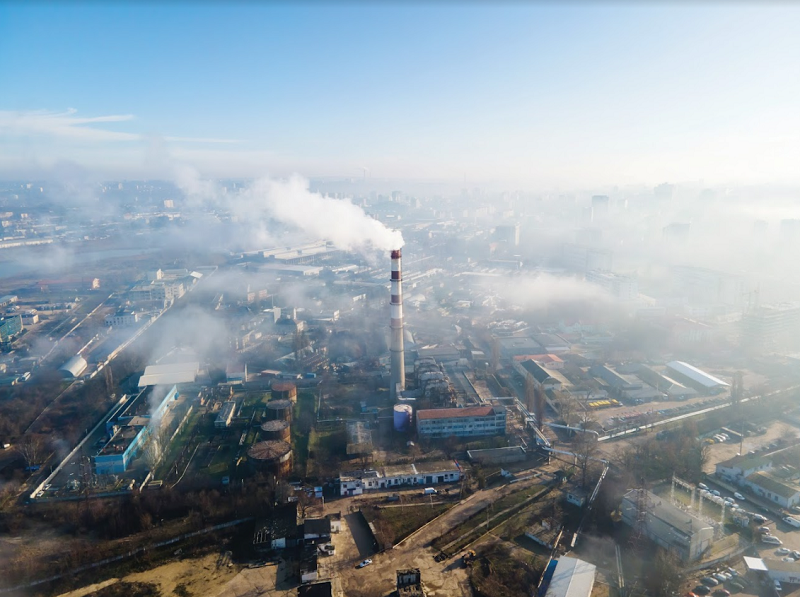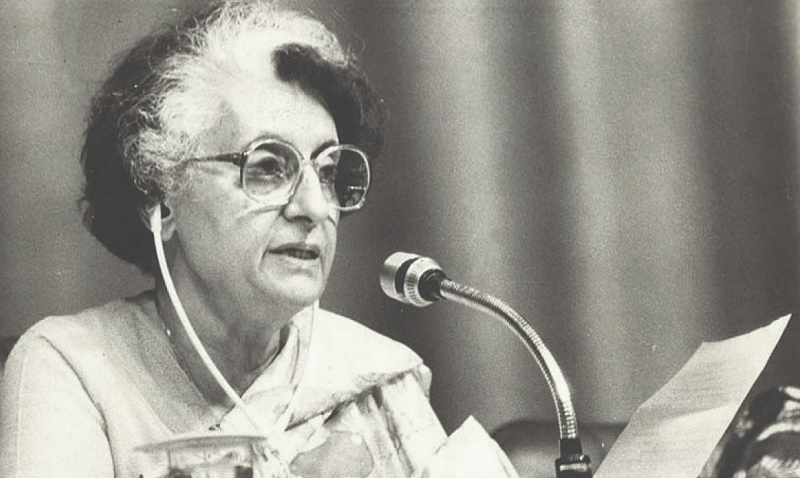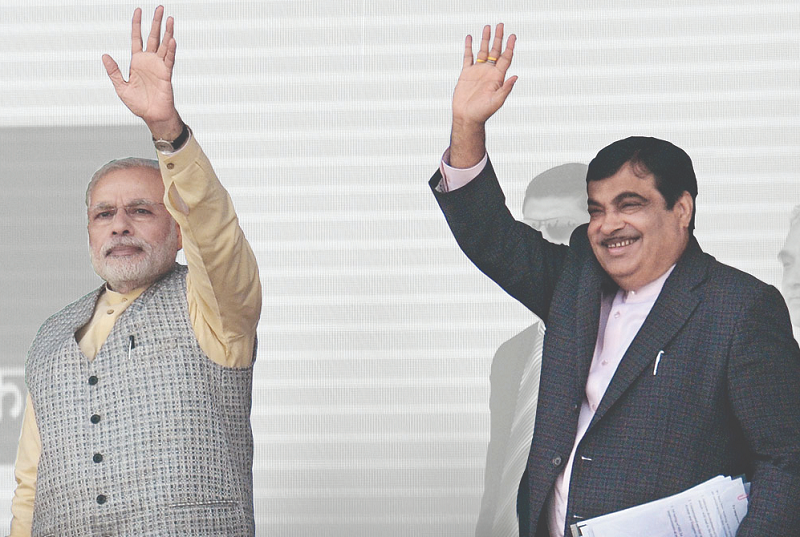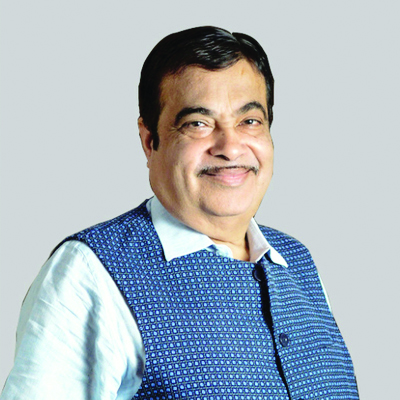As a political leader my philosophy is centred around the concept of “Antyodaya,” echoing the ideals of Swami Vivekananda, Mahatma Gandhi, and Pandit Deendayal Upadhyaya. The belief in uplifting the most vulnerable, providing basic necessities to every Indian family, and ensuring the last man in society has the first opportunity to rise in life has been the driving force behind my endeavours
By Nitin Gadkari
- Thanks to my early orientation, my focus in politics was and has always been, to improve the living conditions of the downtrodden
- Economic liberalisation has brought significant advantages to private sector, particularly in terms of enhancing the quality of services provided to end-users
- By executing most urban development projects through the PPP model, we can direct all government funds toward the most backward regions
- Modernization is also crucial in enhancing agricultural productivity. Farmers must keep pace with the latest technological advancements
GAUTAM BUDDHA said, “An idea that is developed and put into action is more important than an idea that exists only as an idea.”
Not every politician needs to be an economist, and it is not a prerequisite for them to be experts. Proficiency in infrastructure planning or adeptness in managing natural resources is not required either. Instead, a politician should have the acumen to successfully navigate an array of fields with the goal to fulfil the maximum potential of our nation, my political ideology relies on this idea.
EARLY YEARS AND INFLUENCES
I was born into an agricultural family in the early years of India’s Independence. Like millions of other families, we basked in our young nation’s hopes and aspirations. I have firmly believed that one’s parents, and especially the childhood years, leave a big influence on one’s personality. It was my mother I have always looked up to. Despite owning some farming land and a house, my family’s financial condition was not comfortable. This, however, did not prevent my mother from helping the needy. She would always be the first to help a neighbour in times of distress or go out of her way to look after the sick. As a child, I often wondered why my mother had to worry so much about other people’s well-being. But, as I grew up, I realised I had inherited many of her traits.

In the early years of my life, I saw my family’s struggle to make ends meet. My two sisters, who got married early, painfully accumulated 25-50 cents to buy me gifts for Diwali. Knowing their hardships, I felt guilty accepting these gifts. But those troubling times taught me the worth of every penny. Also, it allowed me to stay humble. It made me realise that there are others who are not as fortunate as I am and it taught me to be grateful. I learnt to prioritise helping others instead of trying to make more profit for my own self. Even in times of financial crisis, I would help friends who were worse off, often upsetting my wife in the process. Somehow, bringing joy to others’ lives filled me with a rare sense of satisfaction-it was a habit and philosophy I inherited, practised and held throughout.
After independence, our protectionist policies severely hindered the spirit of Indian entrepreneurship. When I adopted the Public-Private Partnership model in 1997, one of the key factors influencing my decision was my belief in Indian entrepreneurs. By suppressing private entrepreneurial initiatives in capital-intensive sectors, we impeded infrastructure development
During my college years, when I saw the dedicated volunteers of the Rashtriya Swayamsevak Sangh (RSS) cadre in Nagpur working towards shaping the future of the nation with the same objectives as I had-only on a much larger scale-it was natural for me to be drawn to them. Thanks to my early orientation, my focus in politics was and has always been, to improve the living conditions of the downtrodden. This gave me common ground with the RSS. I got involved very closely with the RSS and the Akhil Bharatiya Vidyarthi Parishad (ABVP), which works extensively for social causes. Thus, I took to social work in a big way. I was particularly inspired by RSS founder KB Hedgewarji’s ideals of humanity and nation-building.
TURNING POINT OF MY LIFE
The imposition of the Emergency, a 21-month period from 1975 to 1977, by Indira Gandhi, precipitated the agitation of a betrayed nation. The extent of excesses carried out by the then government shook me out of my comfort zone. As a student, I aggressively campaigned against the Emergency. Certain political developments leave a strong impression on an individual’s life; I realised that the Emergency had changed my approach to life. Had there been no crisis, I would have continued to practise law. I was made conscious of the need to fight for citizens’ democratic rights and also to safeguard the democratic system of governance in India. No regime, under any circumstance whatsoever, has the right to suppress the fundamental rights conferred on the citizens under a country’s Constitution. The emergency, thus, was a turning point in my life. My active participation in politics began in those days and there has been no looking back since.
An important feature of my political life is to improve the lives of the underprivileged. ‘Antyodaya’, as we call it, stands for eradication of abject poverty, provision of basic necessities to every Indian family and ensuring that the last man in society gets the first opportunity to rise in life. This is what Swami Vivekananda, Mahatma Gandhi, Pandit Deendayal Upadhyaya and other saintly figures in India emphasised. I wish to especially mention Gandhi’s ‘principle of trusteeship’ and Pandit Upadhyaya’s concept of ‘integral humanism’ which inspired my own philosophy.
On 19 December 2009, I took charge as the ninth President of the BJP. This was a post graced by Atal Bihari Vajpayeeji and Lal Krishna Advaniji. For someone who has always thought of himself as an ordinary party worker, I was most humbled to take over as its President. That night, I experienced a wide range of emotions as I reflected upon my political journey of more than three decades.
OBSERVATIONS ON DEVELOPMENT
When India gained independence from British rule and Pandit Jawaharlal Nehru became Prime Minister, he embraced the Soviet model of a socialist economy for the nation, as he was greatly influenced by it. Consequently, it was decided to place all sectors under government control. While Pandit Nehru displayed visionary qualities through his decisions, I find myself aligning more with the ideologies of Pandit Deen Dayal Upadhyaya and Dr Syama Prasad Mookerjee.
Unfortunately, our progress was inconsistent, resulting in grossly inadequate facilities, particularly in rural India, and widespread unemployment across the country became a significant issue. Disappointment began to accumulate within various segments of society. The ideal vision our leaders had for a liberated India remained unfulfilled. The absence of political will became the most significant obstacle in our path to achieving equitable prosperity, resulting in stagnation. In contrast, even smaller developing nations have surpassed us in their progress.

Having travelled to approximately thirty-five countries, including extensive visits to the USA and Israel, I have gained valuable insights into the economic policies of various nations. From my observations, I can confidently assert that the economic policy of any country should not solely rely on theoretical concepts outlined in books. Just as we wouldn’t blindly accept a book’s description of an animal as an elephant without personal verification, we must make decisions based on the practical applicability of theoretical knowledge.
Pandit Nehru made substantial investments in the development of iron and steel plants, as well as the construction of dams and bridges, recognizing their significance. His government also established numerous power plants across the country. However, from the time of Independence until 2006, the Indian Government predominantly made unproductive investments of over 560,000 crore rupees in the public sector.
The imposition of the Emergency by Indira Gandhi, precipitated the agitation of a betrayed nation. The extent of excesses carried out by the then government shook me out of my comfort zone. As a student, I aggressively campaigned against the Emergency
It appears that the clumsy operating style of government undertakings has been a significant hindrance to progress. During my tenure as the PWD minister in Maharashtra, I encountered various challenges when proposing models of private sector participation. For instance, in 1996, when I envisioned the flyovers project for Mumbai, incorporating a toll revenue system, I faced criticism from all quarters, including my own party. Questions were raised about the feasibility of constructing bridges and collecting tolls.
Seeking solutions to these obstacles, I eventually embraced the Public-Private Partnership (PPP) model, specifically the Build Operate Transfer (BOT) approach, to execute numerous development projects. Subsequently, this model was also employed for projects like the Golden Quadrilateral and various roads built by the National Highway Authority of India (NHAI), the Pradhan Mantri Gram Sadak Yojana, and similar initiatives. I firmly believe that providing road connectivity to the most remote and underprivileged villages is crucial for achieving the concept of Antyodaya, where the needs of the most vulnerable are prioritised.
I take great pride and satisfaction in having offered a solution to the funding challenges that often plague infrastructure projects in our country during my tenure as PWD minister. Undertaking and successfully executing several demanding projects in my own modest capacity have been fulfilling experiences.
REEVALUATION OF ECONOMIC CHOICES
To reassess the economic decisions made post-Independence, it is worth looking back in time. What were the crucial areas that should have received greater focus? As a nation, we have not addressed these crucial concerns.
The conception or start of a journey is often the most significant determinant of the trajectory it will eventually take. Thus, the economic policies that we, as a country, adopt as an independent nation, will cast a heavy bearing on the nature and rate of our country’s growth over the next several decades. My choice rests on two key factors. The country’s broad economic policies are critical to a nation’s health. While we may have erred.

To simplify matters, we can categorise the entire development agenda into two broad categories: agriculture and industries. In order to promote industrial progress, four fundamental necessities need to be addressed: water, electricity, connectivity, and communication. Similarly, for agricultural advancement, key areas include water management, irrigation, the use of improved seeds, and, most importantly, the facilitation of small-scale industries that process agricultural by-products.
The first opportunity to change an outdated system came in 1995. As a minister of the Public Works Department (PWD) in Maharashtra, I was dismayed by the poor road connectivity to villages, even after five decades of independence. One of the first tasks I undertook was to provide all-weather roads for 13,736 villages in Maharashtra. All the projects I undertook as PWD minister were carried out with the utmost transparency, adhering to the highest standards of integrity.
To simplify matters, we can categorise the entire development agenda into two broad categories: agriculture and industries. In order to promote industrial progress, four fundamental necessities need to be addressed: water, electricity, connectivity, and communication
As a member of a political party, I too subscribe to a certain ideology. That ideology supports a certain line of thinking on economic issues and I am committed to that thinking. I have a strong belief that this ideology can help improve the quality of life of those who are most affected by economic hardship. I will do my best to ensure that the policies of my party are put into practice, for the betterment of our society.
It is essential for a nation to create a level playing field for private entrepreneurs in order to maximise economic progress. Government is not supposed to engage in business activities. The government should instead formulate and implement regulations that secure consumer interests and support private industrial ventures.
Economic liberalisation has brought significant advantages to the private sector, particularly in terms of enhancing the quality of services provided to end-users. The telecom sector is a vivid example of this improvement. In the past, when phones were not widely accessible, making a simple call to my sister in a neighbouring town would cost me more than 50 rupees. This was for just one minute of conversation. Today, I pay less than 1 unit per call. Who has benefited most from this change?
It is a misconception that technology only benefits the wealthy. On the contrary, telecom growth has benefitted the unemployed and the poor. Nowadays, even a vegetable seller can use a phone to inquire about essential goods prices.
In ancient times, India was renowned as a prominent trading hub, and Indians were recognized for their entrepreneurial skills. Historical evidence suggests that trade between India and Central Asia and Europe dates back as early as the first century. The Romans provide the earliest written records of their trading relations with India. As the historian Pliny the Elder quoted “In no year does India draw our empire of less than five hundred and fifty millions of sesterces.” In 1600 AD, the East India Company was established in Britain with the specific purpose of conducting trade with India and China. Numerous other instances validate India’s historical prominence in trade and entrepreneurship.
However, after independence, our protectionist policies severely hindered the spirit of Indian entrepreneurship. When I adopted the Public-Private Partnership (PPP) model in 1997, one of the key factors influencing my decision was my belief in Indian entrepreneurs. By suppressing private entrepreneurial initiatives in capital-intensive sectors, we impeded infrastructure development.
PPP’S ROLE IN INCLUSIVE DEVELOPMENT
The successful completion of the Mumbai-Pune Expressway and the commendable quality of work undertaken during its construction served as a validation of my belief in the efficacy of the Public-Private Partnership (PPP) model. Now, twenty-six years since its adoption, I am elated to witness its widespread acceptance in India as the most viable strategy for accelerating infrastructural growth in our nation.
Recognizing the indispensability of the PPP model for developing economies is of utmost importance. Public-private partnerships foster collaboration between government entities and one or more private sector companies to jointly fund and operate government services or business ventures. This collaboration involves a contractual agreement wherein the private party assumes significant financial, technical, and operational risks while delivering crucial public services.

The diverse application of the PPP model is evident across various scenarios. In some cases, service users bear the cost, sparing taxpayers from the financial burden, while in others, such as the private finance initiative, the private sector makes capital investments based on contracts with the government. Additionally, the government may contribute assets or provide capital subsidies to attract private investors, particularly in infrastructure projects aimed at creating public goods.
In the Indian context, the rise of PPP projects has been facilitated by multiple factors, including India’s positive image as an investment-friendly destination and the presence of stable democratic institutions. These conducive conditions have paved the way for successful collaborations between the government and private sector, driving significant progress in the development and modernization of our nation’s critical infrastructure.
In the quest to develop our villages and uplift the living standards of rural communities, I firmly believe that enhancing the purchasing power of farmers is vital for overall societal progress. The growth of our nation depends on the progress of our villages, and achieving a balanced national progress requires an increase in per capita income in rural India
The establishment of the Ministry for Disinvestment in December 1999 under the NDA government further advanced this initiative. This ministry sought to develop a systematic policy approach for disinvestment and privatisation of Public Sector Units (PSUs). Although the Ministry was dissolved in 2004, responsibility was entrusted to a newly formed department under the Ministry of Finance.
Emphasising the importance of public-private partnerships, I firmly believe that our entrepreneurs must be valued stakeholders in the progress and development of our country. Suppressing their potential could lead to investments in other nations, especially with the current era of globalisation providing numerous opportunities, even in less-developed African countries. To effectively harness our entrepreneurs’ skills, we must provide them with a sense of ownership in key development projects.
Moreover, I firmly believe that the PPP model plays a vital role in improving the living conditions of the most underprivileged individuals. By executing most urban development projects through this model, we can direct all government funds toward the most backward regions, effectively reducing disparities and enhancing social harmony in our country.
In the context of increasing foreign investment in India, it is essential to share the benefits of this investment among various stakeholders. For example, providing incentives to private sector healthcare providers, such as free land and subsidised electricity, in exchange for reserving a percentage of their services for the poor and underprivileged, can ensure that vulnerable segments receive treatment free of cost while allowing these hospitals to charge regular rates for other patients.
Similarly, applying the PPP model to the education sector, such as offering free land and low-cost electricity to establish high-quality educational institutions in rural areas and mandating the reservation of seats for local underprivileged students, can bridge the gap between the rich and poor. Additionally, providing incentives to urban professionals to work in rural areas can lead to cross-migration and benefit the entire country over time.
The tourism sector is another area where its potential remains untapped. Kerala Tourism serves as an outstanding example of the Public-Private Partnership (PPP) model. The private sector in Kerala’s tourism industry surpasses other states in terms of marketing, service quality, and operations. The Kerala Travel Mart, a biannual buyer-seller event held in Kochi, is organised and managed by the private sector. The state government plays a supportive role by encouraging private partners to promote the state domestically and internationally through road shows and tourism fairs. Another noteworthy aspect that highlights private players’ active involvement is that 90 percent of houseboats in Kerala are owned by single or double-boat owners. Tourism significantly enhances the local economy, directly or indirectly benefiting the local population. Therefore, the tourism potential of all states should be harnessed.
The PPP model holds great promise in promoting inclusive development, harnessing entrepreneurial potential, and fostering a balanced and harmonious society. I encourage you to continue advocating for this model, as it can undoubtedly serve as a driving force for progress and prosperity in our great nation.
EMPOWERING RURAL ECONOMY
Most rural India problems are caused by lack of attention. Gandhiji said, ‘We want maximum production with the involvement of a maximum number of persons.’ In our country, we ought to have ideally striven to obtain the maximum production possible by involving more and more people. Schools exist but there are no school buildings. When there is a school building with teachers present, there are no students in it. Where all three are available, there is no quality education. Life in some backward regions is such that there is a dearth of medical expertise, leaving most hospitals doctor-less.

We need strong and honest leaders who can make tough decisions for the nation’s betterment. Leaders who are indecisive despite honesty serve no purpose. On the other hand, dishonest and indecisive leaders are detrimental to our progress as a country
In the quest to develop our villages and uplift the living standards of rural communities, I firmly believe that enhancing the purchasing power of farmers is vital for overall societal progress. The growth of our nation depends on the progress of our villages, and achieving a balanced national progress requires an increase in per capita income in rural India. To facilitate the advancement of agriculture, four fundamental factors must be addressed: ensuring farmers have adequate access to water, providing them with affordable electricity, making high-quality fertilisers and seeds readily available, and establishing industries that process agricultural by-products in Special Economic Zones (SEZs).
Inspired by this vision, I took the initiative in 2000 to establish the Purti Group. This multifaceted organisation focuses on sugarcane farming, sugar production, and co-generation of power through renewable energy sources. The primary strategy behind the group’s diversified activities is to create multiple avenues for growth and development, benefiting farmers and unemployed youth alike. Witnessing the positive impact of this ‘social entrepreneurship’ endeavour in improving the lives of farmers in Maharashtra’s Vidarbha region fills me with immense pride. It is my hope to see many more social entrepreneurship initiatives emerge in all 645 districts across our great nation, fostering prosperity and progress for all.
FOCUS ON WATER, ELECTRICITY, CONNECTIVITY, AND COMMUNICATION
Excuses are often employed to mask our failures, and one commonly used excuse is that irrigation is not a ‘Central’ subject, enabling the Centre to shift responsibility to state governments. State governments, in turn, tend to highlight their limitations. Nevertheless, I firmly believe that with determination, solutions are never beyond reach.
Similarly, the issue of poor road connectivity in rural India was addressed through the National Rural Road Development Committee, which was established under my chairmanship in 2000 by Prime Minister Atal Bihari Vajpayeeji. The committee’s objective was to devise effective solutions, and I emphasised the pivotal role of the Central government in planning and executing roads connecting villages nationwide. Based on these recommendations, the NDA government launched the Pradhan Mantri Gram Sadak Yojana (PMGSY) in 2000, which was revamped in 2014. This transformative initiative aims to provide all-weather road connectivity to all eligible unconnected villages in rural areas. Out of 825,000 villages in India, there were no roads in approximately 330,000 villages. Rural development, until then, had not been given the priority it deserved. Under PMGSY, over 1,22,000 km of rural roads have been constructed, with an average of 130 km of roads being built daily – the highest rate in the last 7 years. This ongoing effort will continue to bridge the gap and bring progress to every corner of our nation.

Moreover, in recognition of the severe water scarcity issue in rural areas during scorching summers, our esteemed Prime Minister envisioned the concept of ‘Amrit Sarovar’ to conserve water for the future.
The rejuvenation of existing ponds and water bodies is a subject close to my heart, as I have been working in this field for many years, in association with agriculture. The problem of drought in several districts of Maharashtra has been severe, with existing water bodies becoming shallow due to siltation, leading to reduced water storage capacity and defeating their purpose.
In 2017, during site visits for the inspection of National Highways Authority of India (NHAI) works, I explored the idea of using excavated earth and material from these ponds and water bodies for NH road constructions, which had enormous potential for utilisation. Model guidelines were devised by MoRTH for using this material without adversely affecting road quality. To address the cost issue, the BJP-led Maharashtra State Government issued guidelines to make such excavated material royalty-free for NH construction. Rejuvenating 873 water bodies till April 2020 in Maharashtra has created an additional water storage capacity of 27,279 TCM (Thousand Cubic Metres), further advancing our efforts towards water conservation and rejuvenation.
Realising the vision of a self-reliant India and a five trillion-dollar economy hinges on producing cost-effective, pollution-free, and environment-friendly indigenous products that reduce dependence on imports and curb pollution
I built flyovers with the help of money earned from the capital market and used the budget allocated to PWD for building metalled roads in 16,000 villages. In Gadchiroli district of Maharashtra, which has a large population of tribals and has often witnessed instances of Maoist violence, I ensured huge public investment in road construction. My priority has always been to reach out to the poorest of the poor. In areas with higher per capita income,I feel people should be ready to pay a bit extra for improved services. This, in my opinion, is the most feasible way in which disparities across various sections of society can be bridged.
Thus, the entire amount of government finance, in my tenure, was made available for poor people. The idea behind this was to give topmost priority to the most backward districts. By focusing on these key areas, we can pave the way for comprehensive rural development and empower our farmers, leading to an inclusive and balanced progress for our great nation.
PROMOTING MODERNIZATION FOR INCLUSIVE GROWTH
The challenges plaguing our nation are not rooted in caste, creed, or language, but rather stem from flawed development policies and ineffective governance. Economic liberalisation has undoubtedly yielded significant gains for the private sector and, more importantly, has led to qualitative improvement in services for the end user. A shining example of this progress can be observed in the telecom sector. This is where communication costs have drastically reduced, benefitting people from all walks of life.
Contrary to the misconception that technology only favours the affluent, it has indeed been a boon for the poor. Today, even a humble vegetable seller can access information about market rates through a simple phone call. This demonstrates technological growth’s inclusive nature.
Similarly, there exist tremendous opportunities for employment and entrepreneurship in bamboo industries. By tapping into the potential of bamboo-related businesses, especially in regions like Bhandara, Maharashtra, we can uplift millions of tribal individuals, providing them with sustainable livelihoods and economic empowerment.
Modernization is also crucial in enhancing agricultural productivity. Farmers must keep pace with the latest technological advancements to ensure sustainable growth. The concept of Agrovision, an exhibition showcasing innovative agricultural products and farming techniques, aims to benefit farmers across the country, contributing to overall rural development and prosperity.
Addressing the energy deficit remains a significant challenge for India’s progress. Ensuring that resources reach the underprivileged is crucial to tackle power load-shedding in rural areas, where education suffers due to a lack of resources. Exploring alternative methods of electricity generation can help alleviate this challenge and create employment opportunities for the people.
In this regard, it is imperative to consider alternative fuels like bio-CNG and green hydrogen, which not only reduce pollution but also save significantly on fuel costs. India has the potential for producing 5 million metric tonnes of green hydrogen per year, making it essential for stakeholders to make these fuels available at cost-effective rates and raise awareness about their benefits.
Realising the vision of a self-reliant India and a five trillion-dollar economy hinges on producing cost-effective, pollution-free, and environment-friendly indigenous products that reduce dependence on imports and curb pollution.
Additionally, India must modernise its farming practices and adopt innovative approaches seen in other parts of the world. Embracing modern techniques such as manufacturing sugar from sources like maize or beetroot can significantly enhance agricultural productivity and reduce rural-to-urban migration.
To achieve inclusive growth, a balance must be struck where regions with higher per capita incomes contribute more to improved services while fostering greater equity across society.
The nation requires strong and honest leaders who can make tough decisions for its betterment. Leaders who are indecisive, despite their honesty, serve no purpose, while dishonest and indecisive leaders hinder progress.
In conclusion, promoting modernization and innovation while ensuring inclusivity in developmental policies is the path to a more prosperous and harmonious India. By empowering the underprivileged, improving rural infrastructure, and fostering a culture of honest and decisive leadership, India can overcome its challenges and realise its true potential. This collective effort will pave the way for inclusive growth, leading to a stronger and more vibrant nation.
